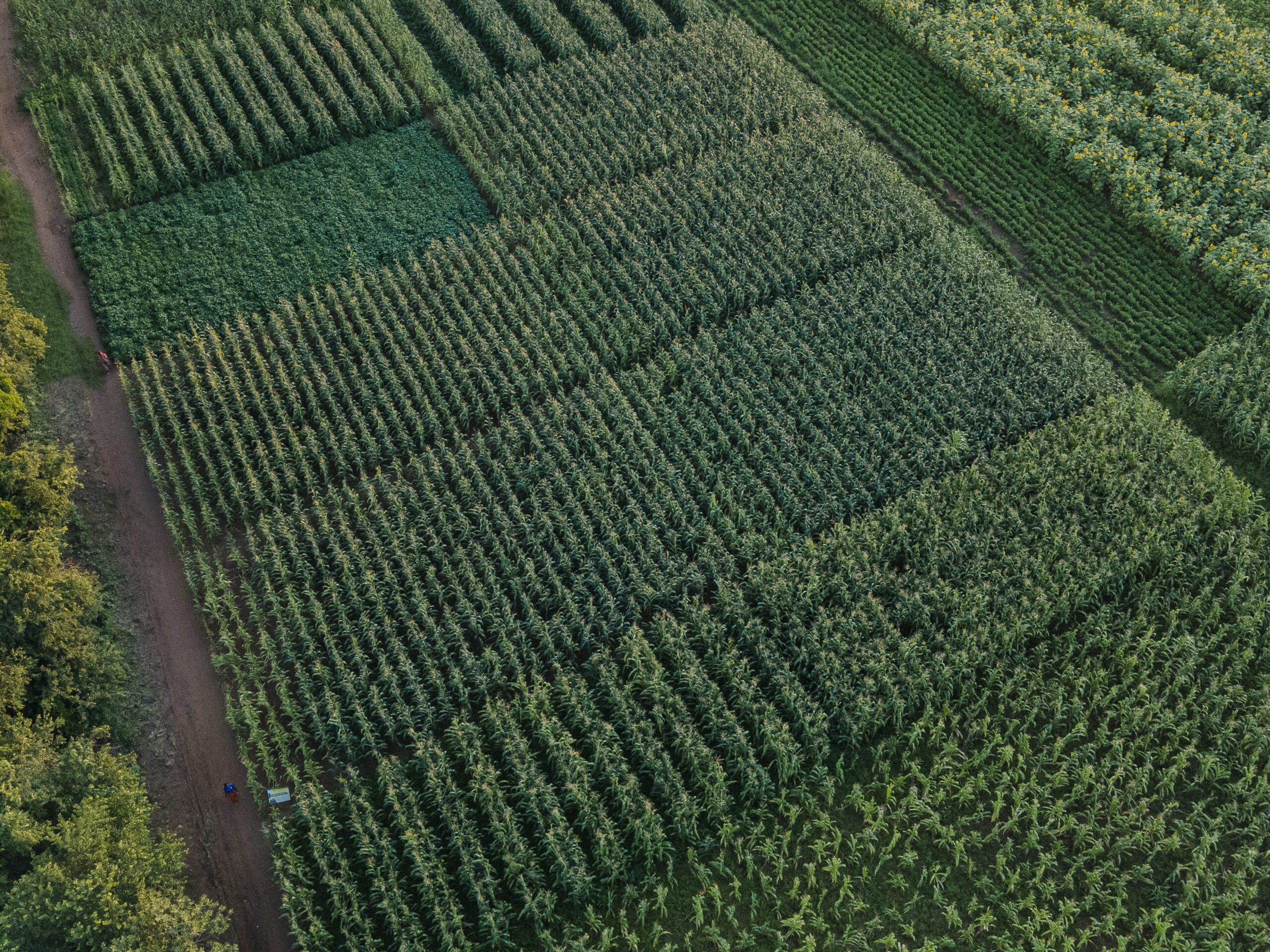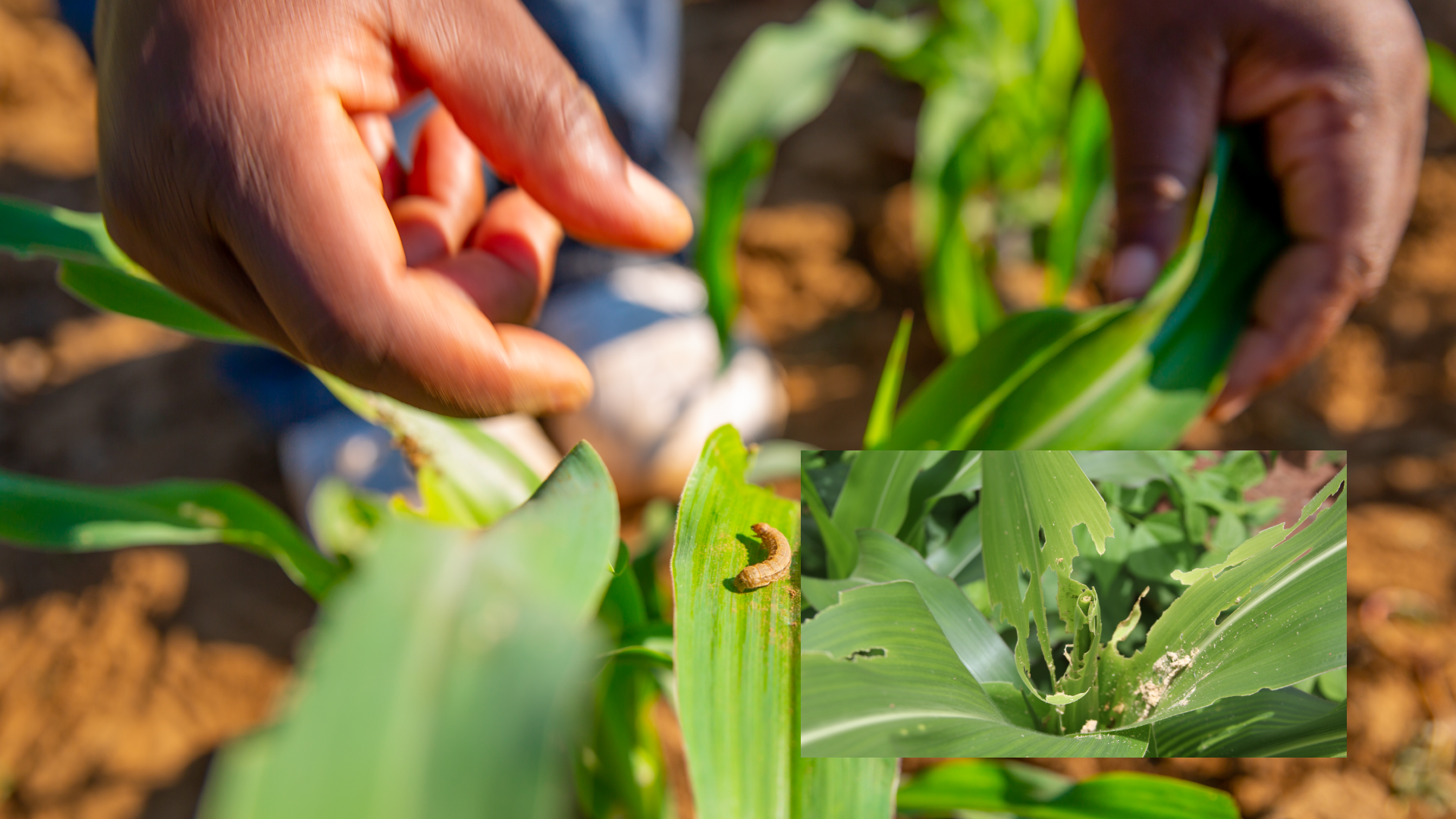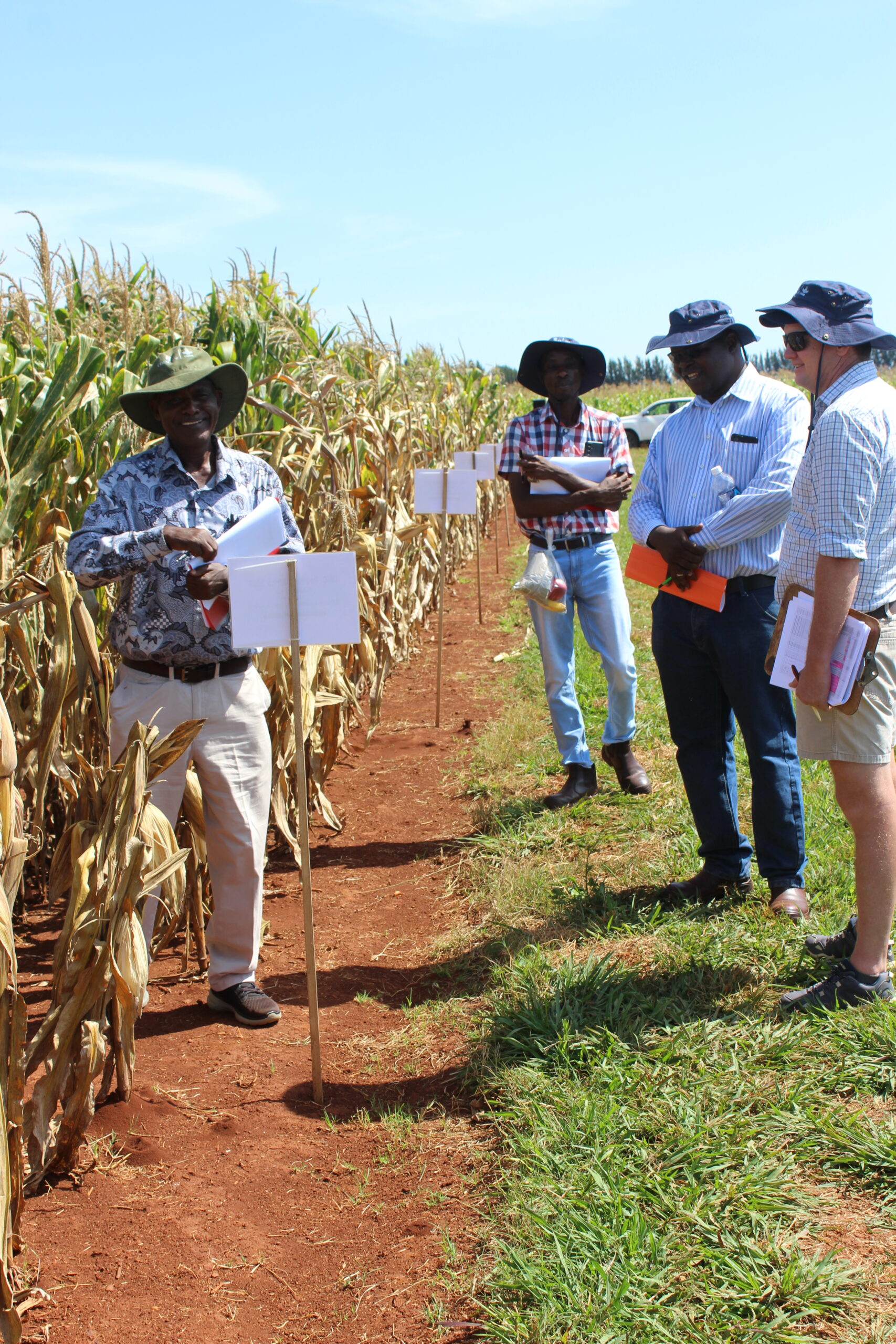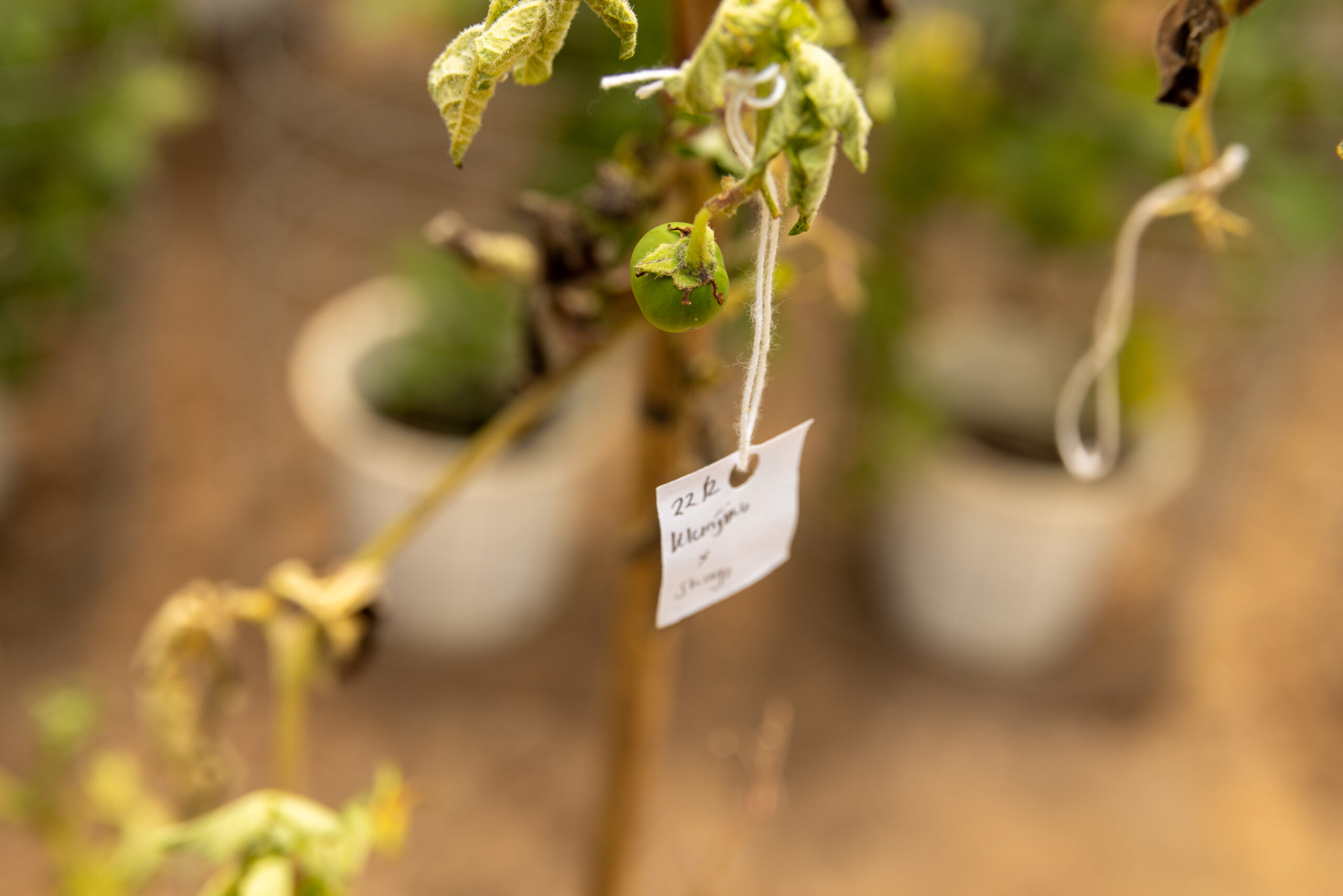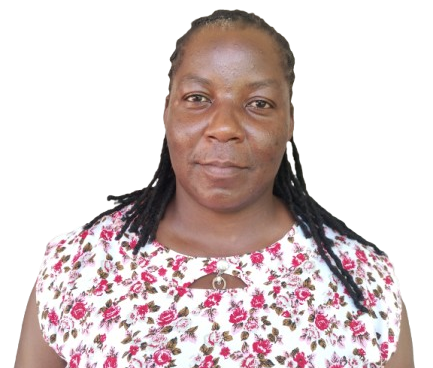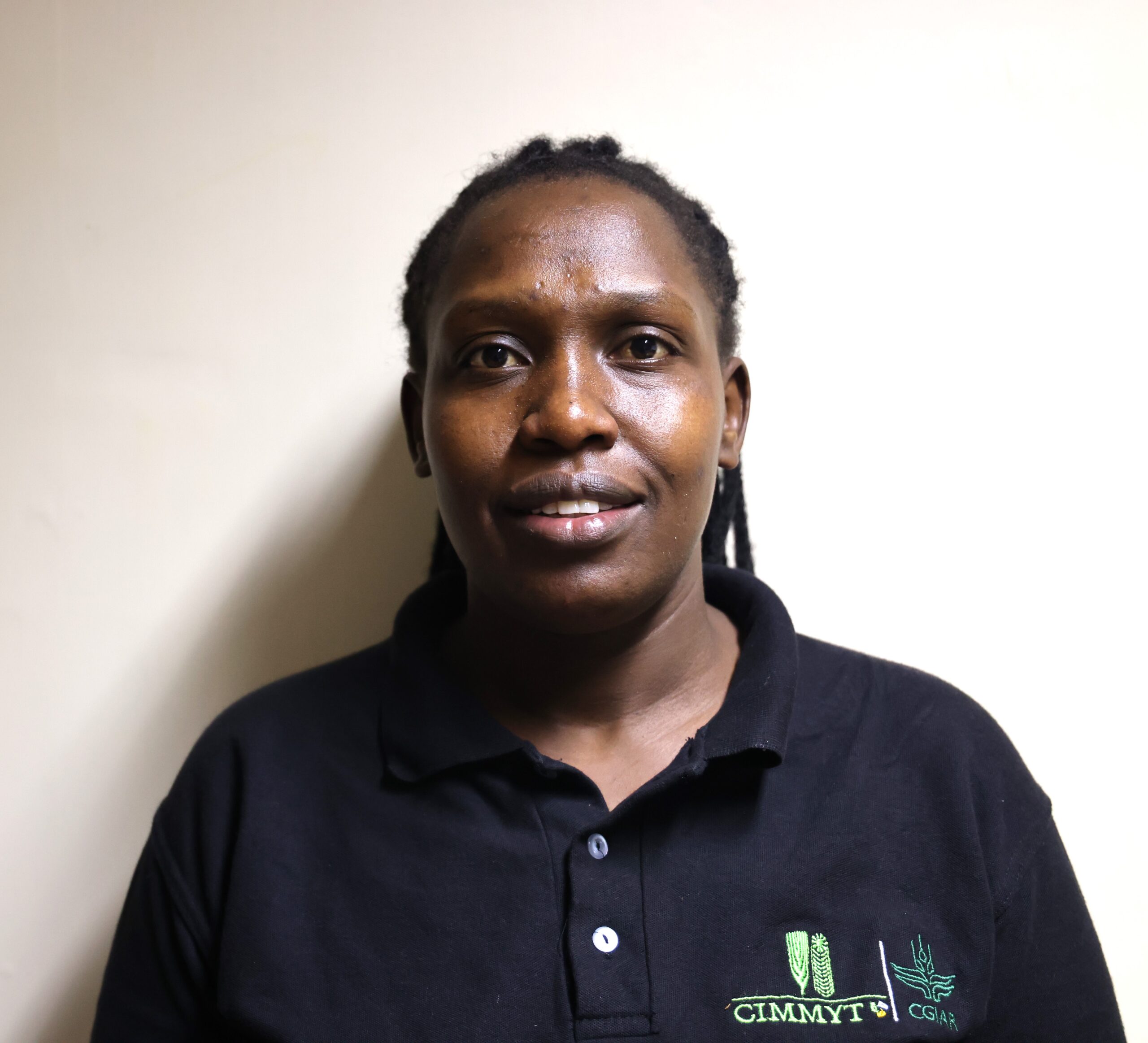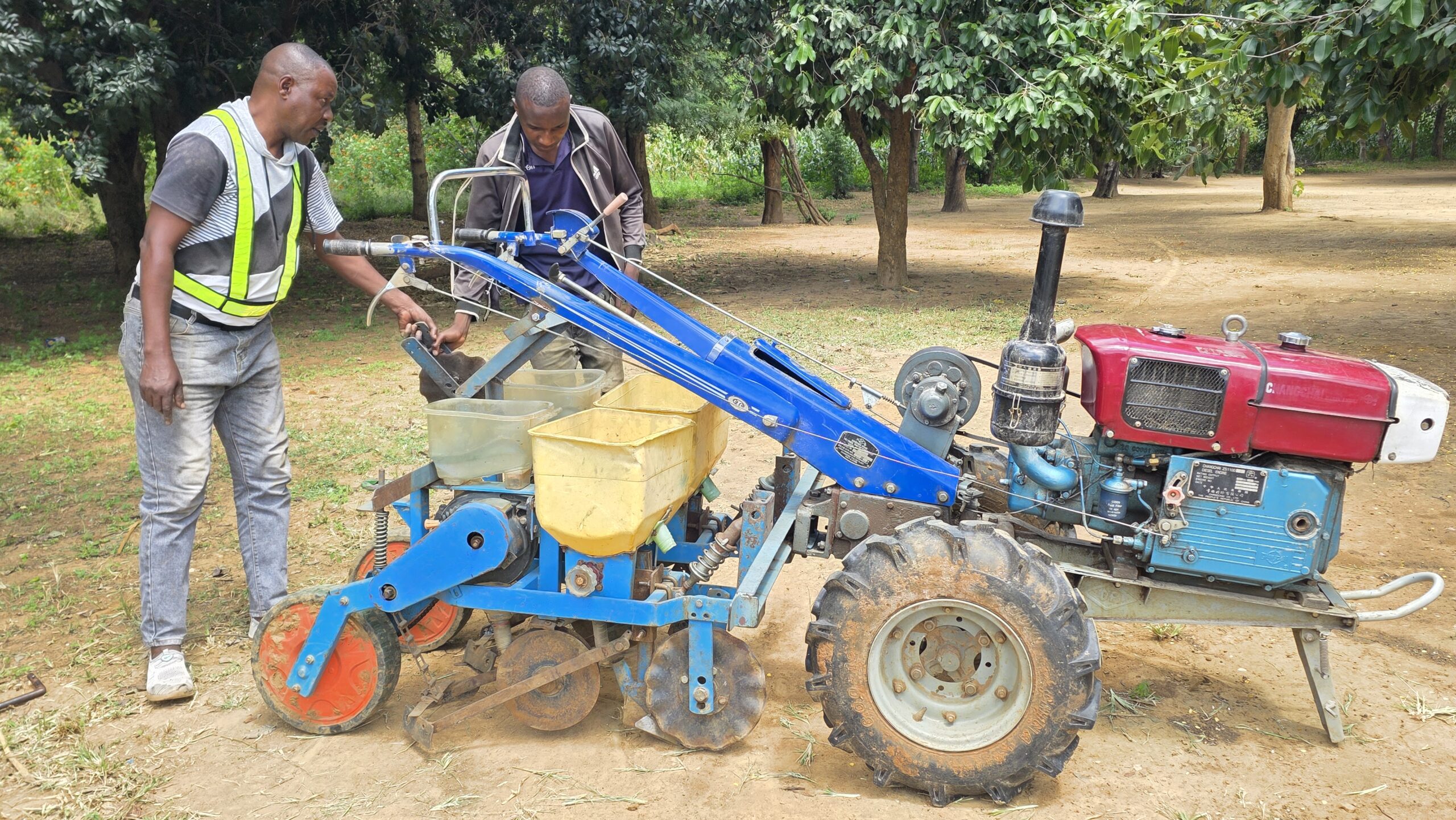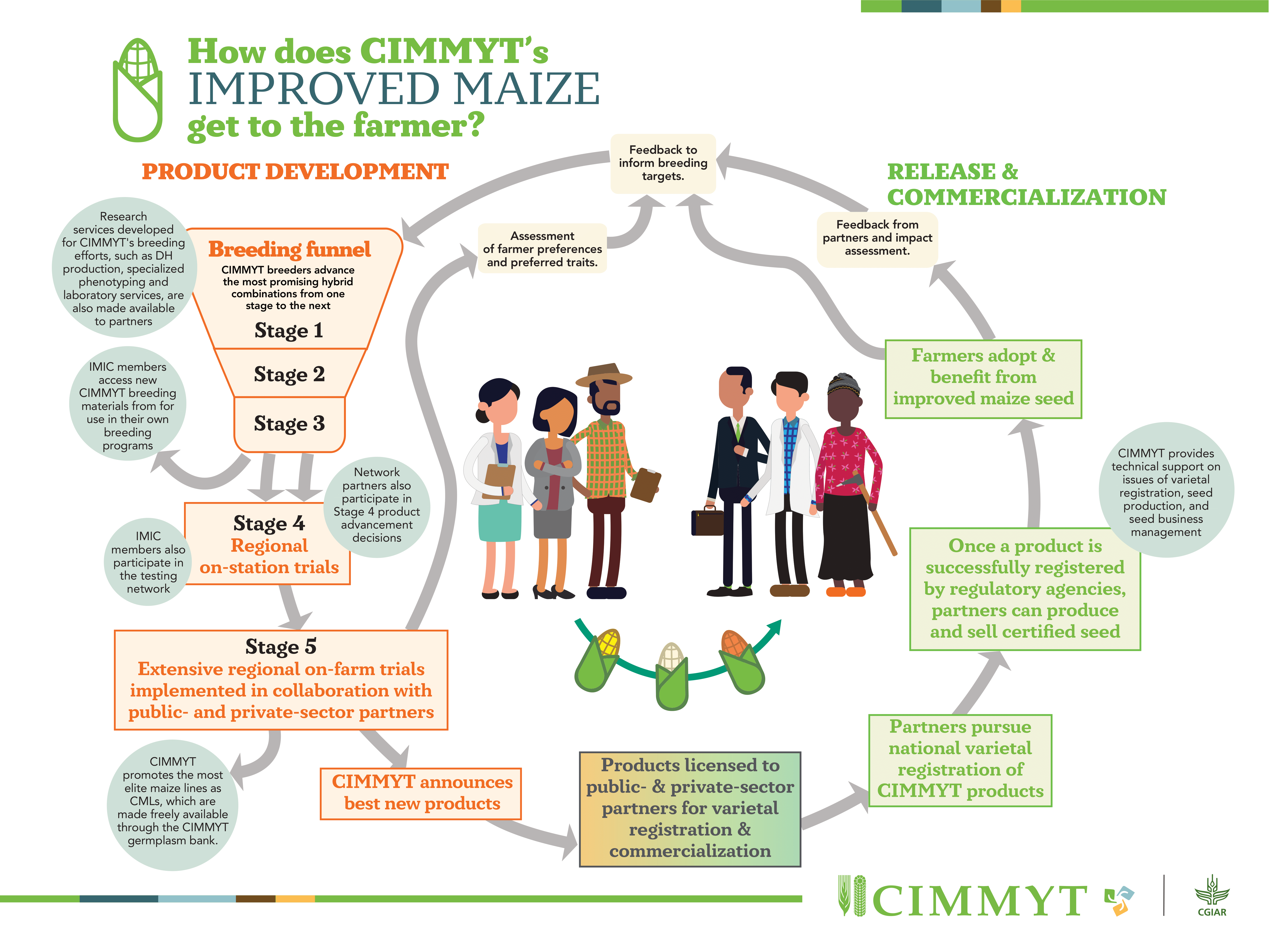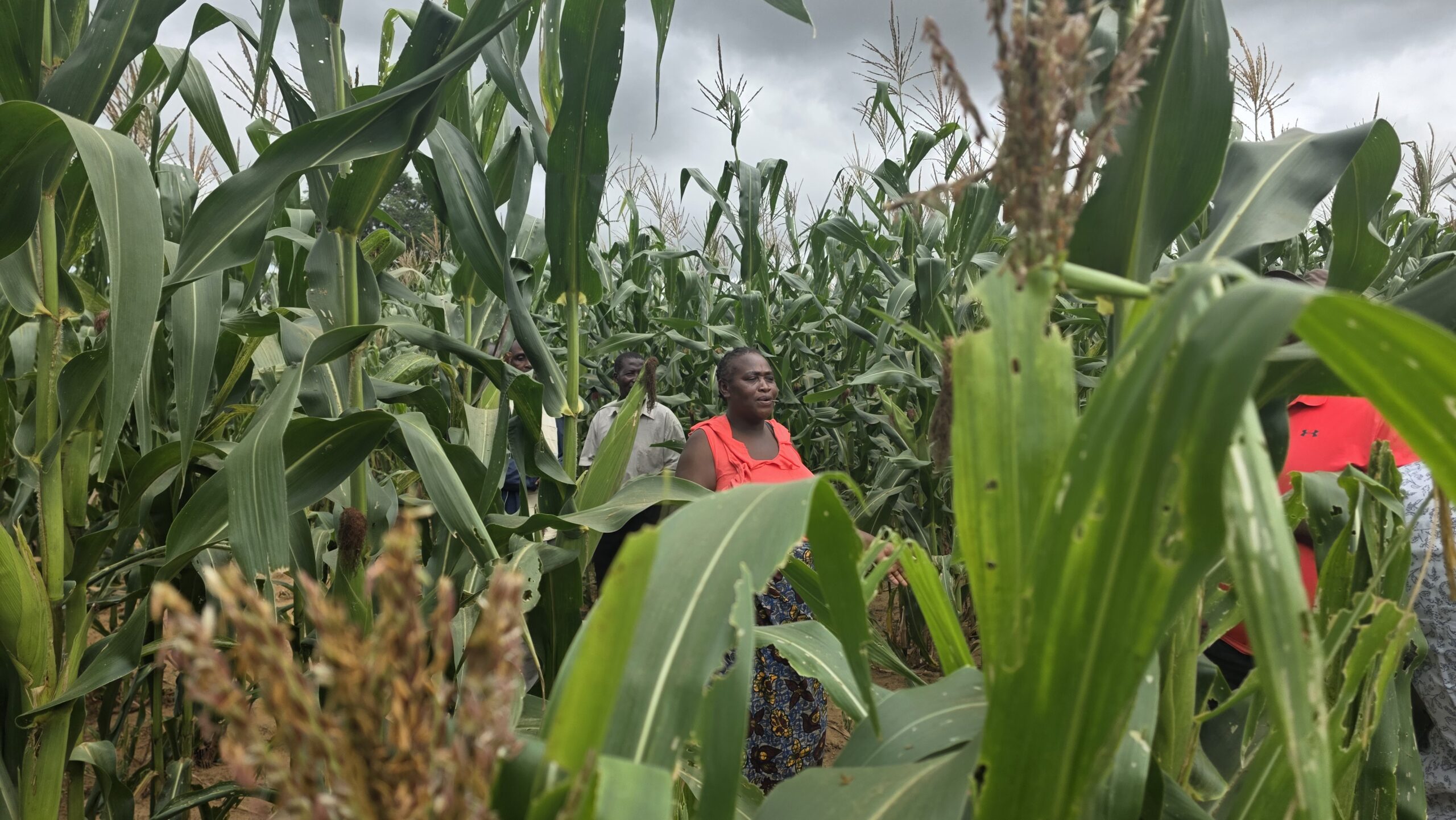Africa
CIMMYT’s work in Africa helps farmers access new maize and wheat systems-based technologies, information and markets, raising incomes and enhancing crop resilience to drought and climate change. CIMMYT sets priorities in consultation with ministries of agriculture, seed companies, farming communities and other stakeholders in the maize and wheat value chains. Our activities in Africa are wide ranging and include: breeding maize for drought tolerance and low-fertility soils, and for resistance to insect pests, foliar diseases and parasitic weeds; sustainably intensifying production in maize- and wheat-based systems; and investigating opportunities to reduce micronutrient and protein malnutrition among women and young children.
Decades of on-station conservation agriculture trials reveal key farming insights for Zambia’s changing climate
Two decades of CIMMYT-led conservation agriculture trials across Zambia uncover how tailored, climate-resilient practices can boost smallholder productivity and soil health amid increasing weather extremes
Small grains and new methods bring resilience to Zimbabwean farmers
 Climate adaptation and mitigation
Climate adaptation and mitigation
Source: Development and Cooperation (12 May 2025)
When the worm won’t wait: Battling Fall Armyworm with science, seeds and farmer-led solutions
 Climate adaptation and mitigation
Climate adaptation and mitigation
When the worm won’t wait, farmers fight back—with science in the seed and solutions rooted in the soil.
IMIC-Africa Field Day 2025: Where science meets collaboration to accelerate maize innovation in Africa
 Capacity development
Capacity development
IMIC-Africa Field Day 2025 brought together science, seed innovation, and collaboration across Africa to fast-track resilient, high-yield maize solutions from lab to farm.
How Crops to End Hunger is transforming CGIAR crop breeding from the ground up
 Capacity development
Capacity development
Crops to End Hunger is modernizing CGIAR breeding systems to boost impact, speed, and inclusivity—transforming how we breed for tomorrow.
Nigeria Releases Hybrid Pearl Millet to Boost Nutrition and Climate Resilience
 Climate adaptation and mitigation
Climate adaptation and mitigation
Source: Dailyhunt ()
Nigeria launches biofortified pearl millet varieties with support from CIMMYT and ICRISAT to combat malnutrition and climate challenges in dryland regions
Reinventing mechanization for Southern Zambia’s drylands: The story of Joe Akombaetwa
 Climate adaptation and mitigation
Climate adaptation and mitigation
Farmer-innovator Joe Akombaetwa is transforming smallholder agriculture in Southern Zambia through climate-smart mechanization and farmer-led engineering, bridging practical ingenuity with sustainable development
Seven New CIMMYT maize hybrids available from Eastern Africa Breeding Program
CIMMYT unveils seven new tropical maize hybrids for uptake by partners targeting Eastern Africa and similar regions
Sowing knowledge, Reaping impact: Lydia’s journey from trial farmer to community leader in Monze, Zambia
 Capacity development
Capacity development
Lydia Siankwede’s journey highlights how participatory research empowers smallholders to build resilience and boost productivity in Zambia
